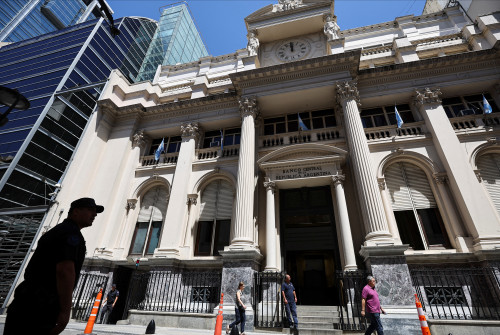By Nichola Groom and Katharine Jackson
(Reuters) -The U.S. House of Representatives on Friday voted to repeal President Joe Biden’s suspension of tariffs on solar panels from four Southeast Asian nations, a move aimed at supporting a domestic supply chain but that solar project builders say would stall clean energy development.
The resolution passed in a 221-202 vote. It will now be sent to the Democratic-controlled Senate for consideration, where its fate is uncertain. The White House has warned that it opposes the legislation, saying in a statement that Biden would veto it.
The measure passed with the help of 12 Democrats. Eight Republicans voted against it.
The bipartisan effort to restore tariffs on solar imports from Malaysia, Cambodia, Thailand and Vietnam is aimed at boosting domestic solar manufacturers who say they cannot compete with cheap products made overseas. Panels from the four nations, which host manufacturing facilities owned by Chinese companies, account for about 80% of U.S. supplies.
“Today’s bipartisan vote holds China accountable for violating our trade laws and scores a big win for American solar manufacturers and workers,” Representative Bill Posey, a Republican who sponsored the resolution, said in an emailed statement.
Biden last year waived tariffs on solar products from the four nations as the Commerce Department was considering whether those imports were dodging duties on goods made in China and violating U.S. law.
Months later, the department issued a preliminary decision to impose tariffs on solar products Chinese companies make in those countries that match current tariffs on goods they make in China. Commerce said this week that it would make its final decision in August. It had originally been expected next week.
A solar trade group, the Solar Energy Industries Association (SEIA), said the legislation would impose $1 billion in tariffs and cause 30,000 job losses in the industry. The group said Biden’s waiver is a “strategic bridge” that allows domestic manufacturing time to ramp up to a level needed to supply U.S. projects.
“We are urging senators to see through this political charade and examine the facts at hand,” Abigail Ross Hopper, SEIA’s president, said in a statement.
The measure was introduced by Republicans and Democrats in January under the Congressional Review Act (CRA), a law that allows Congress to reverse federal agency rules.
(Reporting by Katherine Jackson in Washington and Nichola Groom in Los Angeles; Editing by Richard Chang, Mark Porter and Jonathan Oatis)





